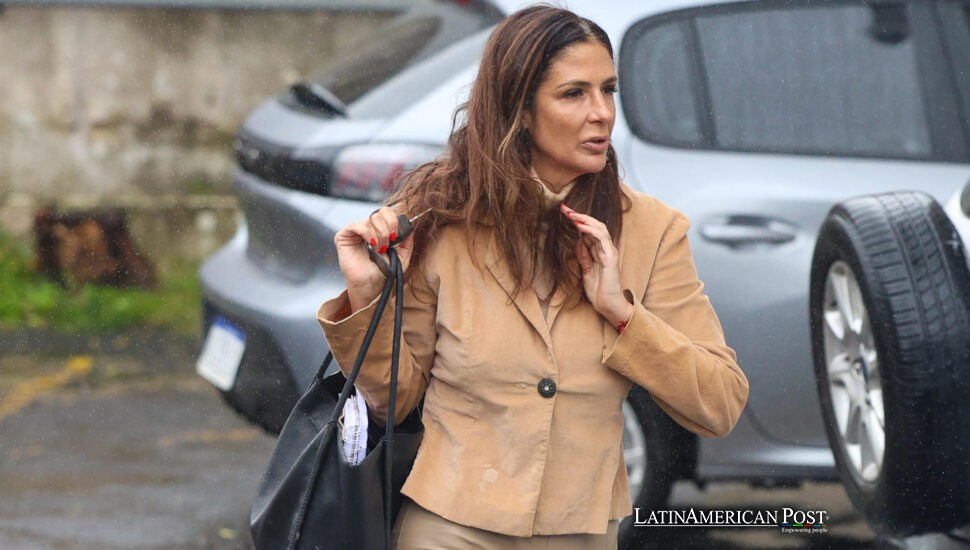Argentina’s Spotlight-Seeking Judge Stumbles in Maradona Murder Trial

A celebrated Argentine jurist has been yanked from the spotlight she eagerly sought. Her secret cameo in a documentary on Diego Maradona’s death trial has detonated a scandal that now threatens her robe, her legacy, and the case itself.
A Curtain Rises in the Court
Until recently, Julieta Makintach glided through San Isidro’s marble corridors as if the halls had been built for her entrance alone. Colleagues admired her crisp rulings, students copied her immaculate shorthand, and visiting attorneys whispered that the young judge might one day claim a seat on Argentina’s highest bench. She wore that praise like a tailored suit—elegant, understated, impossible to miss.
Then came the Maradona case. Seven doctors and nurses stood accused of negligence in the death of the football icon, and every television truck south of the equator camped outside Criminal Oral Court No. 2. Judges are usually assigned by lottery. Yet, when the lots were drawn, Makintach’s name surfaced—just as she’d hinted it would. “Destiny,” she joked to a bailiff, flashing the kind of smile journalists line up to catch.
But destiny, it turned out, had an understudy. One bleak Sunday afternoon, security cameras recorded Makintach entering the empty courthouse in a beige miniskirt and matching blazer—an ensemble more runway than a robe. Behind her trailed old friends wielding boom mics and light stands. They weren’t chasing evidence; they were shooting “Justicia Divina,” a documentary positioning Makintach as “the judge behind God.” There was no keycard swipe or logbook entry—just a confident stride past locked doors, as though the building itself had called “action.”
Days later, sanitized trailer clips leaked online: Makintach on the grand staircase, chin lifted; Makintach wandering the empty courtroom, fingertips brushing the bench; Makintach declaring into a lavalier mic that she was born to deliver justice in the case that held an entire nation breathless. She expected applause. She got sirens.
Reputation Unraveling in Real Time
The first to revoke their ovation were her peers. Senior judges who once praised her precision now spoke in frost-edged sentences. One noted she had “no famous surname to protect her”—a stinging reminder that her late father, revered magistrate Jorge Makintach, had walked these same halls armed only with integrity. Bar associations issued statements on the sanctity of impartiality; pundits asked how a woman so steeped in legal protocol could forget that justice does not share billing with self-promotion.
Makintach tried every defense. The film was a harmless “interview,” she said—then, when outtakes surfaced, an “unauthorized montage.” She accused unnamed rivals of a smear campaign, though the raw footage plainly showed her rehearsing lines under the glow of professional lighting. Even her courtroom demeanor changed: once measured, now edged with sarcasm. Lawyers for the accused claimed she glared so fiercely at their clients that the presumption of innocence wilted in her gaze.
Behind closed doors, colleagues whispered numbers that matter in Argentine justice: three separate impeachment petitions, a 90-day suspension delivered by the Provincial Supreme Court, and a university lecture post scrubbed from the faculty roster overnight. The Secretariat for Judicial Impeachment scheduled hearings. If they find intent to exploit judicial office for personal gain, expulsion could follow—and disbarment after that.
Meanwhile, the Maradona trial, already burdened by celebrity and grief, sank into procedural limbo. Defense teams filed motions to nullify every order Makintach had issued. Prosecutors fumed: a saga meant to clarify how Argentina’s brightest star died was reduced to how a judge’s vanity flared. The courageous nurses who insisted they had done their best, the anguished family demanding accountability—both sides now orbit a scandal neither asked for.
A Bench Left in Ruins
At dawn on the day her suspension took effect, cleaners found fresh flowers on the courthouse steps—yellow daisies tied with a ribbon that read “Justicia sin teatro” (Justice without theater). No one claimed them, but the gesture spoke volumes. The message said the bench is not a stage, and robes are not costumes.
Makintach stays mostly indoors now, curtains drawn against telephoto lenses. Friends say she replays her father’s speeches on an old cassette: stern addresses about humility, the weight of authority, and the peril of seeking applause from the very public you must judge. She recited those lines in law school, crisp as Latin maxims. Today, they cut like glass.
Her downfall carries a caution echoed in law faculties from La Plata to Córdoba: ambition, unmoored from ethics, devours its owner first. While cameras roll on politicians and influencers, judges are expected to fade behind the rulings they sign. Makintach tried to invert that script, chasing fame through a door marked “Objectivity.” Instead of stardom, she found the full glare of scrutiny, and it showed no sign of dimming.
Should impeachment proceed, Argentina will watch a rare public trial of a judge who blurred the line between justice and self-advertisement. The spectacle will be painful but necessary. For all the drama, one truth survives: Diego Maradona deserves a verdict unsullied by ego. Argentina deserves judges who remember that the bench is elevated not to lift them above others but to elevate the law itself.
Also Read: Brazilian Police Sweep Sparks Turmoil In Sao Paulo’s “Crackland” City
If there is redemption for Julieta Makintach, it lies not in a documentary’s cutting room but in the long quiet after testimony ends, when a judge rereads every exhibit and feels the gravity of deciding another’s fate. Whether she will ever know that silence again is now in the hands of colleagues she once dazzled—and who may soon choose her final scene.




